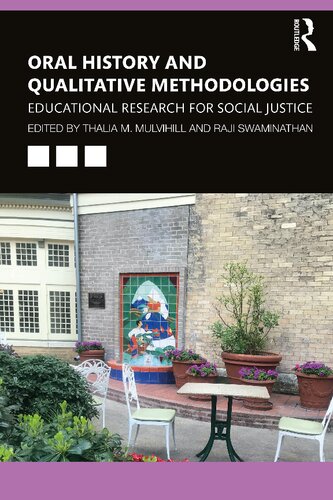

Most ebook files are in PDF format, so you can easily read them using various software such as Foxit Reader or directly on the Google Chrome browser.
Some ebook files are released by publishers in other formats such as .awz, .mobi, .epub, .fb2, etc. You may need to install specific software to read these formats on mobile/PC, such as Calibre.
Please read the tutorial at this link. https://ebooknice.com/page/post?id=faq
We offer FREE conversion to the popular formats you request; however, this may take some time. Therefore, right after payment, please email us, and we will try to provide the service as quickly as possible.
For some exceptional file formats or broken links (if any), please refrain from opening any disputes. Instead, email us first, and we will try to assist within a maximum of 6 hours.
EbookNice Team

Status:
Available0.0
0 reviewsOral History and Qualitative Methodologies: Educational Research for Social Justice examines oral history methodological processes involved in the doing of oral history as well as the theoretical, historical, and knowledge implications of using oral history for social justice projects.
Oral history in qualitative research is an umbrella term that integrates history, life history, and testimony accounts. Oral history draws from various social science disciplines, including educational studies, history, indigenous studies, sociology, anthropology, ethnic studies, women’s studies, and youth studies. The book argues for the further development of a pedagogical culture related to oral history for educational research as part of the effort to diversify the range of human experiences educators, community members, and policy makers incorporate into knowledge-making and knowledge-using processes.
Early career researchers, novice researchers, as well as experienced researchers are invited to join social science educational researchers in developing their own oral history projects using all of the tools, dispositions, and epistemologies affiliated with qualitative inquiry. The book will be of use in courses on qualitative research methods, history, anthropology, women’s studies, and education disciplines as well as by community organizations who want to use oral history to preserve the history of communities and advance social justice projects.